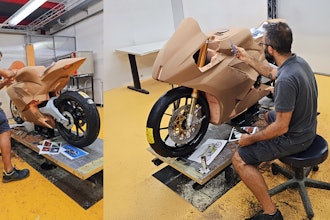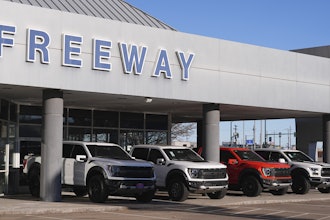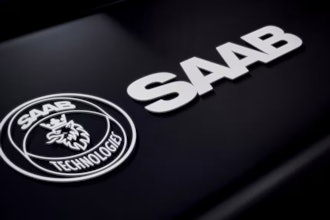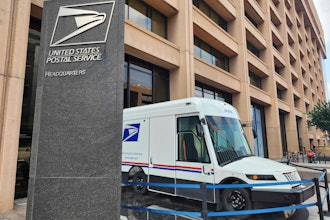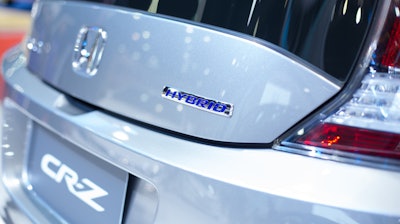
SEATTLE (AP) — Beginning this month, hybrid-vehicle owners in Washington state will start paying an annual $75 car-tab fee to finance electric-car charging stations they'll never use.
The little-known increase is labeled "Hybrid Vehicle Transportation Electrification" on bills from the state Department of Licensing (DOL).
"I was totally baffled," said Brian Cook, of Shelton, Mason County, who received a vehicle-registration renewal notice last week to get his October 2020 tabs for his 2010 Toyota Prius. "It's just another add-on, especially if you're retired. You are on a budget, and if $75 is taken out of your budget, you have to work around it."
The hybrid fee was part of House Bill 2042, intended to promote electric vehicles and reduce carbon emissions. Owners of plug-in electric cars like the Nissan Leaf, who already pay $150 into the state roads fund in lieu of gasoline taxes, will also pay the $75 electrification fee, for a total $225.
The fees are on top of car-tab taxes that help fund Sound Transit expansion as well as state and local transportation projects.
Lawmakers in both parties overwhelmingly approved what's known as the green transportation bill, which included the fee.
"I wrote this legislation to help Washington state transition to a zero-emissions transportation sector," House Transportation Committee Chairman Jake Fey, D-Tacoma, said in a newsletter. It was signed into law by Gov. Jay Inslee, who made a brief run for president this year with a campaign focused on combating climate change.
The new fee will pay for several electric-car incentives. Proponents intend to fill gaps in the statewide charging networks, to help overcome so-called "range anxiety" with an e-fueling station every 40 to 70 miles on major highways.
The bill encourages electric-car ownership for middle-income households by eliminating sales tax for new plug-in cars worth $45,000 or less, and used plug-in cars worth $30,000 or less. And it funds pilot projects including transit electrification, electric cars in low-income neighborhoods and hydrogen fueling.
But it also could add financial strain to thousands of cab and ride-hailing drivers, in a state that already has the most regressive tax structure in the country.
"That will affect my income, it will have to come from my livelihood," said Gurpreet Singh, polishing his Prius on the third floor of the Seattle-Tacoma International Airport garage, where travelers meet taxis and app-based ride-hailing cars, most of them hybrids.
Singh said he earns a net income of around $150 per workday, so the fee consumes a half-day's earnings. As an "old fashioned taxi driver," Singh said he sees government siding with billionaires, Uber and Lyft, so he opposes the fee.
There were 42,542 plug-in electric cars driving around Washington at the start of 2019, according to DOL, nearing a state goal of 50,000 by 2020. A legislative staff chart estimated that the vehicle fees would reap $9.9 million a year from roughly 130,000 registered hybrids.
Fey's original bill didn't impose fees on hybrid cars. They were added by the Senate later through legislative compromises, he said. Some supporters sought the fee on hybrids to fund more electric-car projects — instead of raiding funds for transit facilities and traffic safety upgrades, Fey said.
Amendments by state Sen. Rebecca Saldaña, D-Seattle, added hybrid owners to those paying the $75. In a Senate Transportation Committee hearing this year, Saldaña said she hopes to afford a used electric car, and that middle and lower-income people won't feel comfortable buying them until charging stations are more available.
Senate Transportation Committee Chairman Steve Hobbs, D-Lake Stevens, said that the bill is imperfect, and that constituent emails suggest people were caught by surprise. His preference would be sending the hybrid owners' $75 into the general roads fund, which is scheduled to happen in six years.
"They're driving the same amount of miles, but they're not paying as much for road maintenance as other people do," Hobbs said of hybrid owners. Instead of electric plug-ins, hybrid vehicles include a gasoline motor and recharge their batteries using the kinetic energy generated by wheel momentum.
Cook said he already pays 67.8 cents per gallon gasoline taxes on his Prius, rated at 50 mpg, which he drove to work on the Seattle waterfront before retiring. Because his car isn't a plug-in electric, "I shouldn't have to pay it," he said of the fee.
Airport taxi driver Abraham Shawel agreed. "It doesn't make any sense. I'm not getting any service on it."
Voters this fall will decide on Initiative 976, a Tim Eyman measure to slash car-tab taxes and fees to $30. If I-976 prevails and is upheld by state courts, revenue would be reduced for Sound Transit and state and city transportation projects, including additional Metro bus service paid for by Seattle's $60 car-tab fee.
I-976 would repeal the $150 basic electric car fee — but not the new $75 fee, enacted after Eyman filed the initiative.
"We haven't had anybody scream at us yet, but it could be," said Kathy Olsen, manager of Siler License Agency in Burien, near the airport. Customers usually understand these are state decisions, she said. The agency received a memo last month from DOL alerting staff about the fee, she said.
Chevy Volt owner Curtis Cooper, of Lake Tapps, who commutes to Bellevue, said he refuses to pay another $75 on top of the $150 electric-vehicle fee, Sound Transit taxes, and road fees that he said total more than $600.
"To me, it's flat extortion," said Cooper, who hopes to move to Arizona.
Cooper said he can rarely find unoccupied charging stations for his Volt near work, so he refills the Volt's nine-gallon gasoline tank.
"Early on, it was 90 miles a gallon," he said. "Now that I don't have anyplace to plug into, it's down to 30 or 40. I don't have an electric vehicle anymore."












